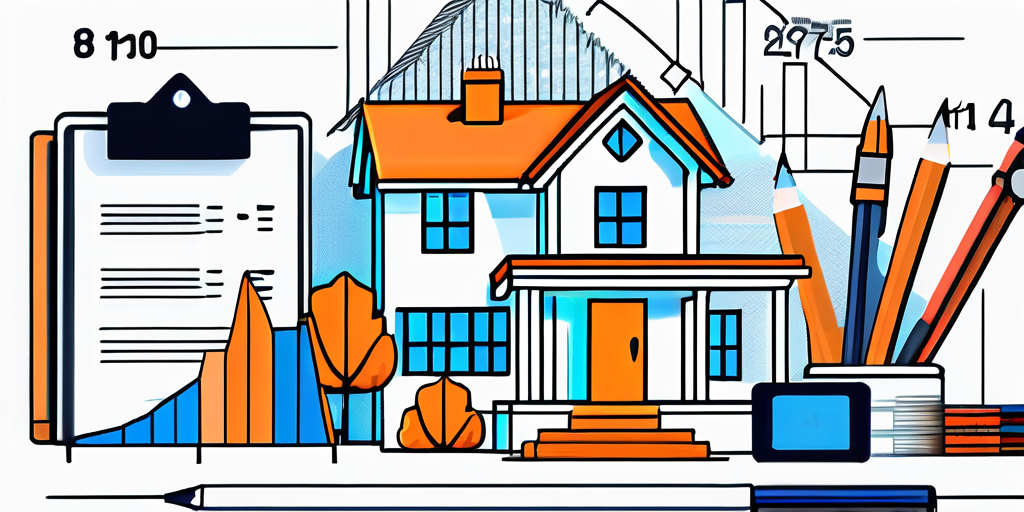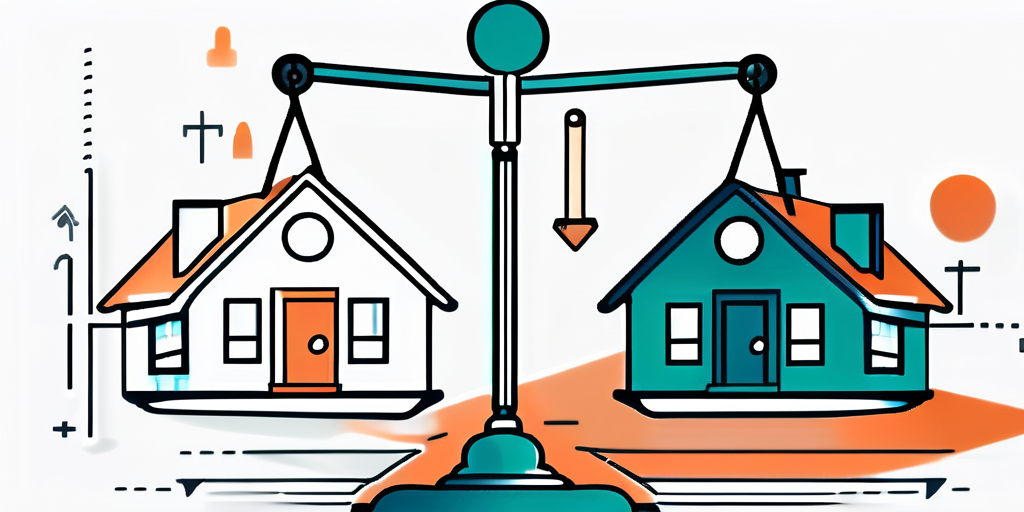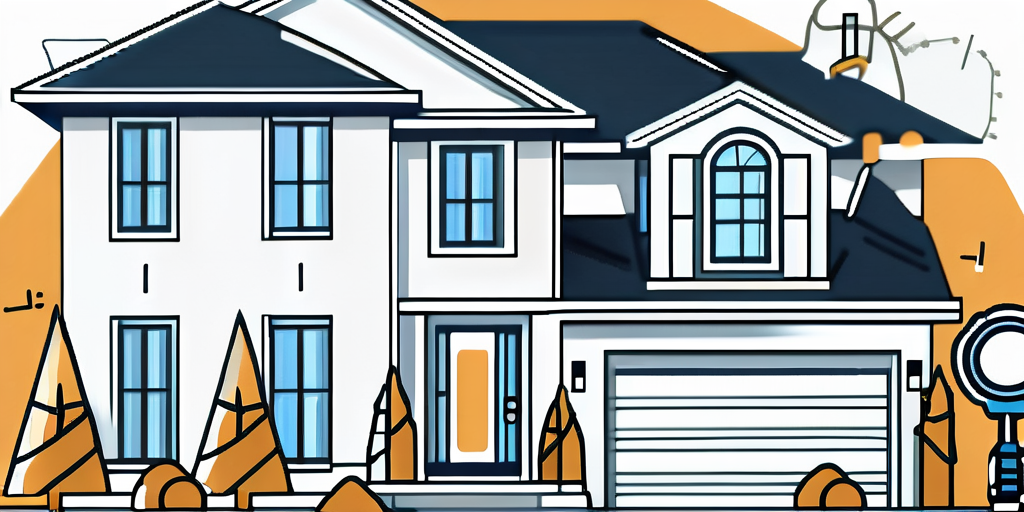How to Determine Home Selling Price: A Comprehensive Guide
Setting the right price for your home is one of the most crucial aspects of the selling process. Price it too high, and you risk having your listing sit on the market for months. Price it too low, and you might miss out on potential profit. This guide aims to provide you with insights into how to determine a competitive selling price for your home and ensure you attract the right buyers.
Understanding the Basics of Home Valuation
Home valuation is a systematic approach to determining the true worth of a property. This process relies on various elements that interact to determine how much buyers are willing to pay. Understanding these elements can empower you as a seller to make informed decisions.

The Role of Real Estate Market Trends
The real estate market is dynamic and can fluctuate based on various factors including economic conditions, seasonal trends, and buyer behavior. For instance, homes in suburban areas have seen increased demand post-pandemic as buyers look for more space, leading to increased selling prices.
Consider the example of a three-bedroom house in a family-friendly suburb. Last year, similar homes sold for around $350,000. However, due to rising demand in that area, the same home could command a price upwards of $375,000 this year. Tracking these market trends can help you time your listing correctly.
Importance of Location in Home Pricing
Location is often cited as the most critical factor in real estate valuation. Homes situated in desirable neighborhoods with good schools, parks, and access to public transport typically fetch higher prices.
For instance, a three-bedroom property in a highly-rated school district may sell for $450,000, while a similar house just a few miles away but in a less desirable area might only attract $300,000. Buyers are often willing to pay a premium for the right location, making it essential for sellers to understand how their area stacks up.
The Impact of Property Size and Condition
Another cornerstone of home valuation is the size and condition of the property. Larger homes naturally command higher prices, but this can also be heavily influenced by factors such as recent renovations, curb appeal, and overall upkeep.
If you have a well-maintained four-bedroom home with modern amenities, it may be worth significantly more than an older three-bedroom property in need of repairs. For example, a renovated kitchen and updated bathrooms can add tens of thousands to your home’s value, making it imperative to invest wisely before listing.
Key Factors Influencing Home Selling Price
Beyond location, size, and condition, several other elements can significantly impact your home's selling price. Understanding these can aid in setting a strategic pricing plan.

The Influence of Economic Conditions
The state of the national economy plays a notable role in determining home prices. When unemployment rates are low and wages are rising, potential buyers are more likely to spend on real estate. Conversely, during an economic downturn, the opposite is true.
For instance, during the COVID-19 pandemic, many homeowners opted to sell, leading to increased inventory and pushing some prices down due to competition. Understanding the broader economic context can be crucial; aligning your pricing strategy accordingly can greatly alleviate stress and uncertainty.
The Effect of Supply and Demand
Real estate is primarily governed by the laws of supply and demand. In a seller's market where demand outstrips supply, sellers can command higher prices and may even receive multiple offers. Conversely, in a buyer's market, pricing may need to be more competitive.
An excellent example is the tech boom in San Francisco, where housing demand significantly outpaced supply, driving up prices dramatically. Homes that might typically be valued at $1 million saw listings climb to $1.5 million due to fierce competition among buyers.
The Significance of Home Improvements
Investing in strategic home improvements can notably influence how much you can command during the sale. Projects such as minor kitchen remodels or a fresh coat of paint can enhance your home’s appeal and value.
For example, a homeowner who spends $15,000 on a kitchen upgrade may see an increase in their home’s value by around $30,000. This return on investment can significantly boost your selling price and attract more serious buyers.
The Process of Home Appraisal
Once you have a basic understanding of how to value your home, the appraisal process comes into play. This is often a critical step before closing a deal and is conducted by an unbiased third party.

Preparing for a Home Appraisal
Before your home appraisal, it’s vital to prepare adequately. Start with necessary repairs, decluttering, and addressing any maintenance issues. Small details, such as a tidy garden and freshly cleaned interiors, can make a lasting impression on the appraiser.
What to Expect During an Appraisal
During the appraisal, the appraiser will walk through your home, taking note of its features and condition. They’ll also compare your property to similar homes that have recently sold in the area, known as "comps."
Interpreting Appraisal Results
Once the appraisal is complete, you will receive an official report detailing your home's appraised value. It’s essential to review this document to understand any factors that could impact your pricing strategy. If the appraisal comes in lower than you anticipated, it may be time to reevaluate your pricing and marketing plans.
Utilizing Online Home Value Estimators
In this digital age, many sellers turn to online home value estimators as a quick reference for pricing their homes. These tools can provide a ballpark figure, but it's crucial to understand their limitations.
Pros and Cons of Online Estimators
Online home value estimators are convenient and can give you an immediate ballpark figure. They analyze various data points, including recent sales in your area, to generate an estimate.
However, these tools can sometimes lack precision since they cannot account for unique features of your home, such as its condition or any improvements you've made. Thus, while useful, they should not be your sole reference point for pricing.
How Accurate are Online Estimators?
The accuracy of online estimators can vary widely. In some cases, they may provide a reasonable estimate, but in other situations, they can be off by tens of thousands of dollars. It's always advised to cross-reference these estimates against recent sales data and consult with a local real estate agent for the most accurate assessment.
In conclusion, determining the right selling price for your home involves a comprehensive analysis of various factors, from location and condition to economic conditions and market trends. By equipping yourself with this knowledge, you can set a competitive price that attracts buyers while maximizing your profit.
Maximize Your Home's Value with SmartSellersMatch.com
Ready to take the next step in pricing your home without a realtor? Visit SmartSellersMatch.com to get an instant FSBO Market Score. Our platform empowers you with the essential information and documents needed for a successful sale. Discover how your home measures up in the current market and learn what improvements can boost your home’s value for a more profitable sale. Get your FSBO Market Score now and start your journey to a smart, realtor-free sale.





